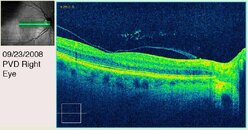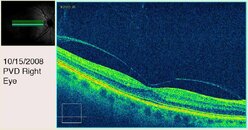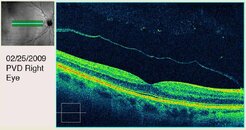gert7to3
Contributor
- Messages
- 1,167
- Reaction score
- 119
- # of dives
- 200 - 499
Moving Target,
Did you see your doctor because you noticed a vision problem or was this observed during a regular exam?
Oftentimes a branch retinal vein occlusion (BRVO) occurs where a retinal vein is crossed by retinal artery. The artery may press against the vein partially obstructing it. This is frequently a side effect of hypertension. Much of the time BRVO resolves spontaneously.
So far as testing goes, the retinal specialist you were probably referred to may order a fluorescein angiogram. This test will measure the blood flow within your retina and define the area affected by the occlusion.
Since no gas bubble has formed inside your eye BRVO would probably not preclude diving. Of course, the underlying issue needs to be addressed.
Wikipedia has concise explanation and photo: Branch retinal vein occlusion - Wikipedia, the free encyclopedia
Just be aware the photo is of a fairly severe BRVO and yours may just be a little spot.
Good luck, I hope this is just a small, passing event for you.
Did you see your doctor because you noticed a vision problem or was this observed during a regular exam?
Oftentimes a branch retinal vein occlusion (BRVO) occurs where a retinal vein is crossed by retinal artery. The artery may press against the vein partially obstructing it. This is frequently a side effect of hypertension. Much of the time BRVO resolves spontaneously.
So far as testing goes, the retinal specialist you were probably referred to may order a fluorescein angiogram. This test will measure the blood flow within your retina and define the area affected by the occlusion.
Since no gas bubble has formed inside your eye BRVO would probably not preclude diving. Of course, the underlying issue needs to be addressed.
Wikipedia has concise explanation and photo: Branch retinal vein occlusion - Wikipedia, the free encyclopedia
Just be aware the photo is of a fairly severe BRVO and yours may just be a little spot.
Good luck, I hope this is just a small, passing event for you.







